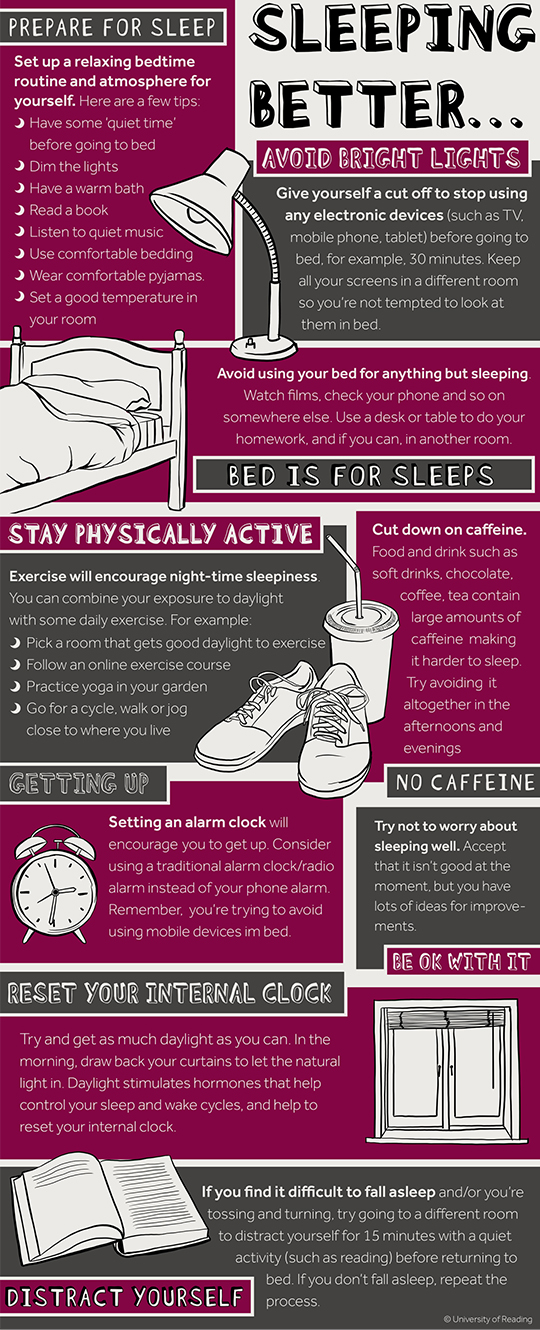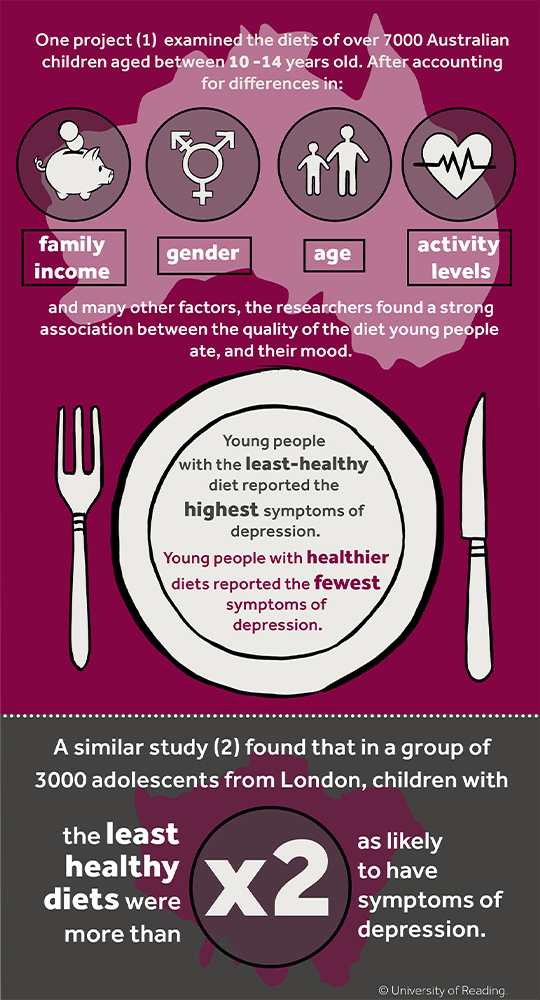Routines
Routines are an important part of life that keep the body prepared and ready for the day ahead. Restrictions brought about by COVID-19 may have disrupted many of your existing routines, particularly if you or other family members are now working or studying from home (or no longer working). You may have found that your sleeping, eating and exercising patterns have changed, and that you have more (or less) time for your usual activities.
As much as possible, it’s important to maintain some existing routines. This can help you to feel active and engaged, and maintain a sense of normality during these uncertain times. Some of these activities may be quite simple, for example:
• Getting up at the same time each morning
• Getting showered and dressed in the morning – just like any normal day.
• Wearing clothes you know make you feel good about yourself and give your mood a boost.
Sleeping, eating and exercise also benefit from routine. The body runs on a 24 hour clock, and knows what to expect at certain times when we have regular routines, such as what time we have dinner and when we go to bed. Once our body knows our rhythms, it can prepare for them, for example releasing melatonin, a hormone that helps you feel sleepy at bedtime.
Where your daily structure has changed, for example, if you’re not going to school or work, it may be helpful to try and create new routines. If you’re working at home, try to set aside a work space, with a consistent start and finish time, adding in other activities to make your day more balanced. Remember that working or studying at home is likely to look very different to the way it did before COVID-19, and it’s important to be realistic about what’s achievable.
Try breaking the day up into a series of different activities. These might include:
• Exercise
• Hobbies or leisure
• Relaxation
• Connecting with others
• Doing things that you enjoy or find meaningful
• Learning something new
You may need to be creative about finding new ways to pursue these activities if your normal approach to exercise, or participating in hobbies is no longer possible. Also try to be kind to yourself, it’s fine not to fill every additional moment doing something new.
One way to approach this is to spend time each evening thinking about what tasks you need to do the following day, and what other activities you’d like to do. Here’s an example outline of how you might like to try this; you can edit this template directly.
After you’ve experimented with planning for a few days, reflect on what impact this has had on your routine, and your mood in particular. What has worked for you, and what hasn’t worked so well? You may wish to discuss this with other members of your household.
Staying Connected
These unusual times have meant that the way in which we connect and socialise, has changed drastically. Young people in particular may be missing this aspect of their lives and feel isolated and unconnected as a result.
It’s therefore really important to maintain regular connections with friends, peers, family, groups and other organisations, even if the way we do this now looks very different. Fortunately, we live in an age where we have many devices that can be used for ‘virtual’ meet-ups. We can join coffee dates, group exercises, gatherings with friends, catch-ups with our colleagues or teachers, and work meetings from our homes.
Maintaining this contact will keep some normality, and a good structure for our day.
It’s likely that some of your conversations at the moment will involve discussing how you are feeling about the COVID-19 pandemic. Sharing feelings with others can be very helpful and make us realise we are not alone. It’s likely that most people are experiencing ups and downs and will have good days and bad days.
Technology Use
It’s important to bear in mind, that whilst technology is a blessing for staying in contact with others, it can also provide us with a constant reminder of the situation and negative messages from the news and social media. It’s also important to remember that social media news and images are often not based on facts.
Distancing yourself from these negative messages and resisting the urge to frequently check social media can be very helpful in promoting a more positive mood, particularly if you find yourself struggling.
Because of your new working or studying arrangements, you may find yourself using screens for longer than you might normally do. This is not necessarily an issue and it may be in everyone’s interest to relax rules around screen time during this period. You can read this article on the BBC website for an interesting discussion on this issue.
Maintaining Balance
The key is to maintain a balance between staying connected, but also not spending too much time on devices or listening to negative things on social media from individuals with whom you don’t have a relationship.
If you notice your mood dipping, turn the devices off for a while and do something active or focus on what interests you instead. It’s fine to want some time to yourself each day but it’s also worth spending time with other members of your household to break up your day and stay connected.
Sleep is hugely important for both our physical and mental health, and teenagers in particular are vulnerable to sleeping difficulties, due to changes in their biology. During these times of social distancing and social isolation, you may have found your sleep habits have changed or become even more challenging.


